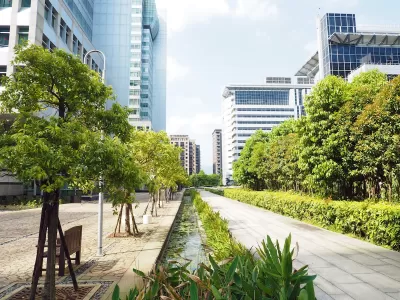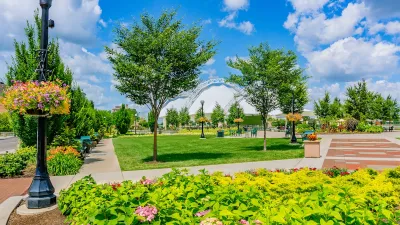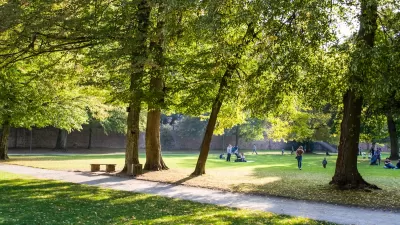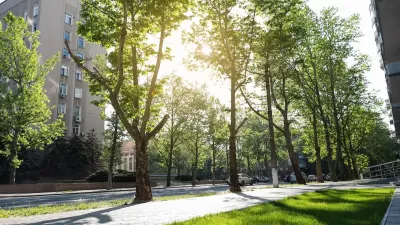Urban forestry job training programs are creating economic opportunities for underrepresented individuals while addressing workforce shortages and advancing tree equity in communities most impacted by environmental disparities.

Kris Cameron’s story exemplifies how urban forestry job training programs can provide life-changing opportunities for formerly incarcerated individuals. After struggling to secure stable employment, he joined the Green Reentry Job Training program at Garden Time, a Rhode Island nonprofit dedicated to preparing individuals for careers in tree care. The program gave him technical skills in arboriculture, professional support, and essential life skills, leading to his promotion as a foreman at Groundwork Rhode Island. His journey reflects the broader impact of these programs, which not only help participants rebuild their lives but also address workforce shortages in the green industry.
As rising temperatures and environmental challenges heighten the need for tree cover in underserved communities and older professionals retire from the field, urban forestry faces a labor gap that organizations like American Forests are working to fill. Through its Tree Equity Workforce Network, American Forests funds training initiatives like Garden Time, The Works in Memphis, and Tucson Clean and Beautiful, helping underrepresented individuals enter the tree-care profession. These programs provide technical education alongside wraparound services such as transportation, housing support, and mentorship, ensuring that trainees have the resources to succeed in their new careers.
As reported by Nicole Greenfield, tree equity is about more than planting trees — it is about creating economic opportunities for those most affected by environmental disparities. Programs like The Works’ Tree CPR train residents in communities with low tree canopy, equipping them with skills to improve their neighborhoods while securing stable employment. By expanding these initiatives, American Forests and its partners are not only greening cities but also fostering economic mobility and social justice. As participants plant and maintain trees that will outlive them, they are creating lasting legacies of resilience, opportunity, and environmental stewardship.
FULL STORY: Branching out: Growing careers and spreading equity through urban forestry

Alabama: Trump Terminates Settlements for Black Communities Harmed By Raw Sewage
Trump deemed the landmark civil rights agreement “illegal DEI and environmental justice policy.”

Planetizen Federal Action Tracker
A weekly monitor of how Trump’s orders and actions are impacting planners and planning in America.

The 120 Year Old Tiny Home Villages That Sheltered San Francisco’s Earthquake Refugees
More than a century ago, San Francisco mobilized to house thousands of residents displaced by the 1906 earthquake. Could their strategy offer a model for the present?

Opinion: California’s SB 79 Would Improve Housing Affordability and Transit Access
A proposed bill would legalize transit-oriented development statewide.

Record Temperatures Prompt Push for Environmental Justice Bills
Nevada legislators are proposing laws that would mandate heat mitigation measures to protect residents from the impacts of extreme heat.

Downtown Pittsburgh Set to Gain 1,300 New Housing Units
Pittsburgh’s office buildings, many of which date back to the early 20th century, are prime candidates for conversion to housing.
Urban Design for Planners 1: Software Tools
This six-course series explores essential urban design concepts using open source software and equips planners with the tools they need to participate fully in the urban design process.
Planning for Universal Design
Learn the tools for implementing Universal Design in planning regulations.
Clanton & Associates, Inc.
Jessamine County Fiscal Court
Institute for Housing and Urban Development Studies (IHS)
City of Grandview
Harvard GSD Executive Education
Toledo-Lucas County Plan Commissions
Salt Lake City
NYU Wagner Graduate School of Public Service





























